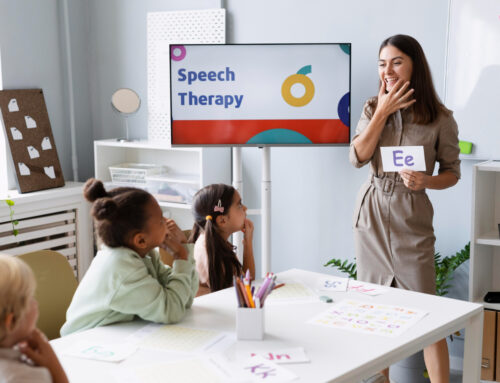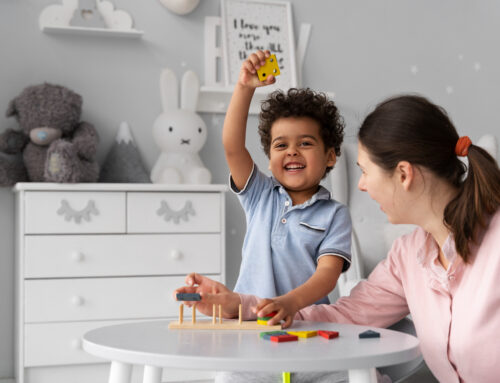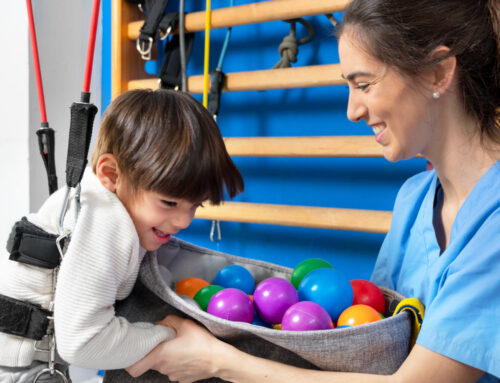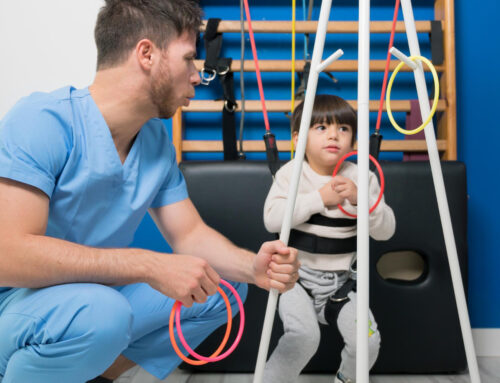
p>period does in fact exist. Kiddos at this age can be so full of life and love, and wonderful memories can be made based on their adorable disposition. Then, in a split second, everything good morphs into an engulfing darkness that seems to last for months: intense temper tantrums at home and in public, endless crying over seemingly small things, weird shouting matches in strange tongues, and extensive trails of broken toys and household objects.
“Terrible twos” does not necessarily mean that your charming baby will transform into a raging tyrant at the very stroke of midnight on their second birthday. Depending on your child, this stage can start much earlier or slightly later (i.e., 18 months to 2.5 years of age). The goal for parents is to be able to discern from the typical signs of the “terrible twos” and atypical behaviors in need of unique attention. So, let’s start with answering why toddlers often act so terribly during this time in life:
- Language is developing: By the time a child turns two years old, he or she now has a handful of single-words and possibly a few short sentences. The majority of their verbal expression comes in the form of commands in order to get what they need or want (i.e., sleep, food, diaper changes, medical attention, toys, etc.). Unfortunately, their language is still quite limited compared to older children thus the frustration begins. Toddlers try desperately to communicate with their family, but misunderstandings come up and tantrums are thrown. This is a point of aggravation for both toddlers and their parents.
- Motor skills are refining: By now, a typical-growing toddler is walking or maybe even running around the house. Other movements include navigating the stairs, climbing all over the furniture, escaping cribs or gated beds, getting in and out of the tub by themselves, partially dressing and undressing themselves, coloring on the walls, removing and replacing lids, ripping open packages or bags, etc. This is an exciting bag of tricks for toddlers and they can’t wait to use their newfound skills. This often results in kiddos getting into things that they really aren’t supposed to, causing minor episodes of household destruction.
- Cognitive development allows for boundary-testing: Brain development helps toddlers see past simple black and white rules. Now, they want to test parents’ boundaries and see how far they can go before they get into trouble. This often results in attempts to turn parents or other family members against each other because the child figures out that every adult varies in authority and rules.
- Maturing expression of independence: Because the child is developing new language, cognitive, and motor skills he or she is going to want more and more opportunities to do activities on their own. Friction happens because as much as the child wants to do everything independently, parents realize that the child still has some limitations. In order to keep the child safe or to minimize frustration, parents naturally intervene and help which thoroughly irritates independent-minded kids.
Parents can’t control all of the dismal factors of the “terrible twos”, but they can conduct a few things to minimize problems and promote their child’s growth:
- Keep your own emotions in check: As a parent of a toddler, it can be very challenging to keep your cool when your child completely loses it 24/7. It is your job to keep your emotions under control in order to give your child a sense of love and security. Call on family and friends for assistance when (and you will) need a break from your child.
- Purposefully find moments for teaching: Your child may act like they have everything figured out, but two years of age is just a sliver of lifetime experience. During those moments where your child gets angry or does something that breaks the rules, lovingly use those times to teach your child. Listen carefully to what they are trying to tell you, even if it’s muddled or confusing. Guide them to finding the right answers and solutions
- Maintain a structured day: Try to create a relatively predictable, daily pattern for your child. This does not necessarily mean that you have to do the exact same activities in the exact same order every day. Attempt to grasp some consistency (meal times, community errands, nap times, bath-times, etc.). Structured days also means having consistent rules and expectations among both parents.
- Consult with professionals if needed: Some children are going to require specialized and professional attention due to developmental delays or other childhood conditions. The “terrible twos” is a period of growth for a child that should come to an end before grade school, which means the child can regulate their emotions in order to successfully participate in activities outside of the home. If you believe that your child is behind or struggling with motor, language, cognitive, or emotional development, or if you think their behaviors are escalating beyond the toddler norm do not hesitate to consult with a professional. Start with your pediatrician who can then refer you to other relevant healthcare providers.





